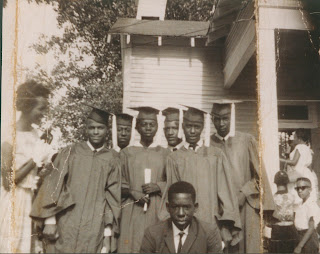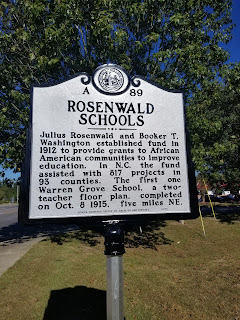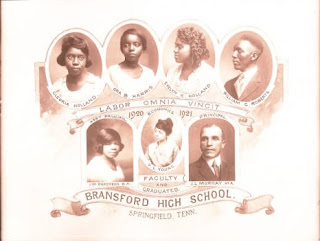As my last blog post for Black History Month I want to talk about my favorite African American subject, the Rosenwald Fund.
The Rosenwald Fund also known as the Julius Rosenwald Fund was established in 1917 by Julius Rosenwald and his family with a partnership with Booker T. Washington to build and support local African American schools in the south. Unlike other endowed foundations, which were designed to fund themselves in perpetuity, the Rosenwald Fund was designed to expend all of its funds for philanthropic purposes before a predetermined sunset date. The fund donated over $70 million to public schools, colleges and universities, museums, Jewish charities and African American institutions before funds were completely depleted in 1948.
One of the more well known projects was providing funds to local school boards to build African American schools. Over 5,000 schools were built in the states of Florida, Georgia, Alabama, Mississippi, Tennessee, Kentucky, Louisiana, Arkansas, Texas, Oklahoma, North Carolina, South Carolina, Missouri, Virginia and West Virginia.
In Houston County, Tennessee, where I am the archivist at the Houston County Archives & Museum, we have uncovered documents, photos and information about an African American school we had locally that was funded by the Julius Rosenwald Fund. The W.H. Hensley School was built with funds from the Rosenwald Fund. This fund also provided funds for books and other supplies. While the school building itself no longer exists, the history of this school is being documented so that it is not forgotten.
If you think your African American ancestors attended a Julius Rosenwald funded school, check with the local historical or genealogical society and see if they have any information, documents or photos. Many of these school buildings still exist and have historical markers placed to honor the work Julius Rosenwald and Booker T. Washington accomplished.
We should be researching all aspects of our families ancestry, including the schools they attended!
***********************************************************************************
Want To Know More About Researching in School Records?
Watch my Legacy Family Tree Webinar
The ABC's and 123's of Researching Your Ancestor's School Records
http://legacy.familytreewebinars.com/?aid=3076



.jpg)











